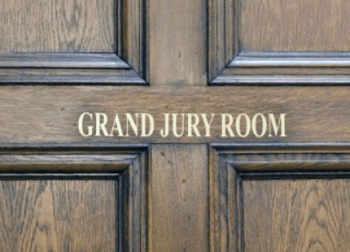 You may hear on the news that a case is going to the Grand Jury and wonder, What exactly is a Grand Jury? Is a grand jury to same thing as a regular jury? Can does a grand jury have special powers that a regular jury doesn’t have? Where does a grand jury fit into my case? This article seeks to answer those questions and clear up some of the myths about grand juries in Texas.
You may hear on the news that a case is going to the Grand Jury and wonder, What exactly is a Grand Jury? Is a grand jury to same thing as a regular jury? Can does a grand jury have special powers that a regular jury doesn’t have? Where does a grand jury fit into my case? This article seeks to answer those questions and clear up some of the myths about grand juries in Texas.
What is a Grand Jury?
A grand jury is group of 12 citizens that review felony criminal charges to determines whether probable cause exists for the case to continue forward. This is NOT the same type of jury that hears the case at trial. The Grand Jury does not decide guilt or innocence, only probable cause. If the grand jurors determine that there is probable cause, then they vote to indict the case. An indictment is an essential part of every criminal case. If the grand jurors determine that there is not probable cause to believe an offense has been committed by the named defendant, then they vote to issue a no-bill. A no-bill typically means the case is dismissed and the District Attorney will not proceed with prosecution of the case.
How are the Grand Jurors Selected to Serve?
Prior to 2015, grand juries were chosen by “jury commissioner” appointed by district court judges. This process was known as the “pick-a-pal” system. The law changed in September 2015 and now grand jurors are selected in a random fashion, akin to the trial jury selection system. The jury pool is taken from registered voters in the county in which the court presides. Prospective jurors cannot have been convicted of any felony offense or a misdemeanor involving moral turpitude (like theft). They must also not have any criminal charges pending against them.
What is an Indictment?
An indictment is the formal accusation of a crime, issued by a grand jury. Prior to an indictment, the district attorney typically makes an allegation through a complaint. A complaint can become an indictment only after the grand jury votes to issue the indictment. Only an indicted felony case can proceed to trial (where the real jurors decide whether a defendant is guilty or not guilty).
What is a No-Bill?
If a grand jury decides that a felony charge is not supported by probable cause, then it votes to return a no-bill on the case. This literally means that there was “no bill of indictment” issued. Sometimes, instead of a complete no-bill, a grand jury will indict a lesser-included charge, taking the felony to a misdemeanor.
The Mechanics of the Grand Jury Process in Texas
It is important to understand that the grand jury process is a secret proceeding. The defendant and his attorney do not have a right to be present in the hearing room or to present evidence unless the district attorney permits them to make a presentation. It is discretionary for the DA to allow either a paper submission or live testimony offered by the defense. During the grand jury hearing for a particular case an Assistant DA will explain the charge and the legal elements that the state is required to prove. The ADA will then run down the evidence from the police report and other video/audio recordings, giving the grand jurors a brief synopsis of the facts. The jurors can ask questions of the ADA and request further evidence if needed. In some cases, the ADA will call witnesses like police officers or victims to give testimony regarding the alleged offense. Most cases can be completed with the grand jury in a matter of hours, but the occasional complex case might take longer.
How is a Grand Jury Difference from a Regular Jury?
The grand jurors serve a term (approximately three months), usually coming to the courthouse a couple of day each week. A regular jury comes for jury service and will only hear one case. A grand jury only hears a brief version of the facts from the side of the state while the regular trial jury will hear the full version of the facts from both sides as well as cross-examination of the witnesses. Grand jurors can only vote to indict or no-bill. They cannot find a person guilty or not guilty – only a trial jury can do that. So, in a sense, the trial jury actually has the “grand” power.
Should the Defense Make a Grand Jury Presentation?
In our experience, it can be incredibly helpful to make a defense presentation to the grand jury. This can mean the difference between a felony indictment, a misdemeanor lesser charge, or a complete dismissal. Sometimes the best presentation is a written presentation and other times the defense would be better served to address the grand jurors in person. It really depends on the case and the overall strategy of the defense team. Grand jurors like to ask questions, so being there to answer them is usually a good thing (if you have good explanations).









